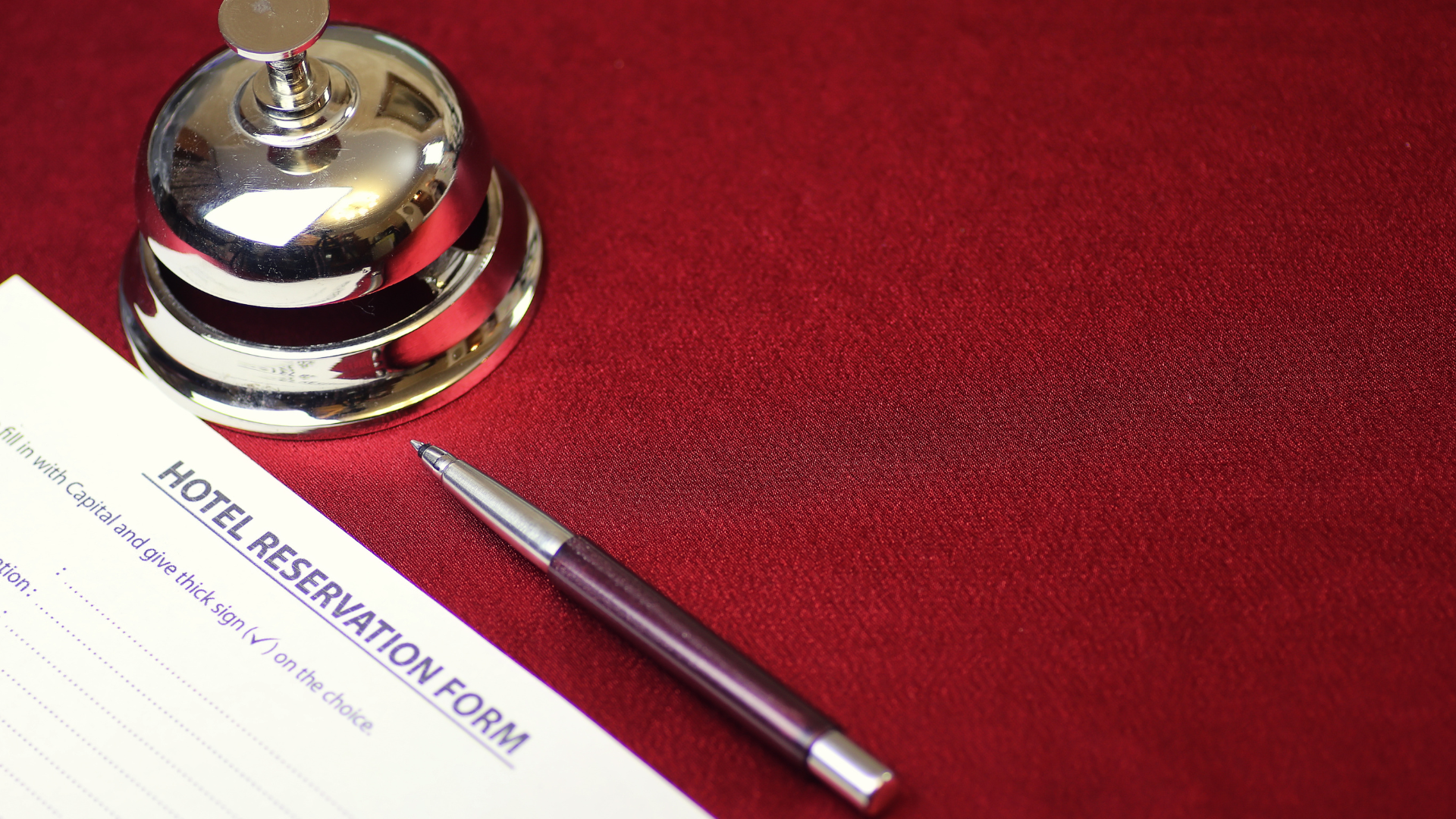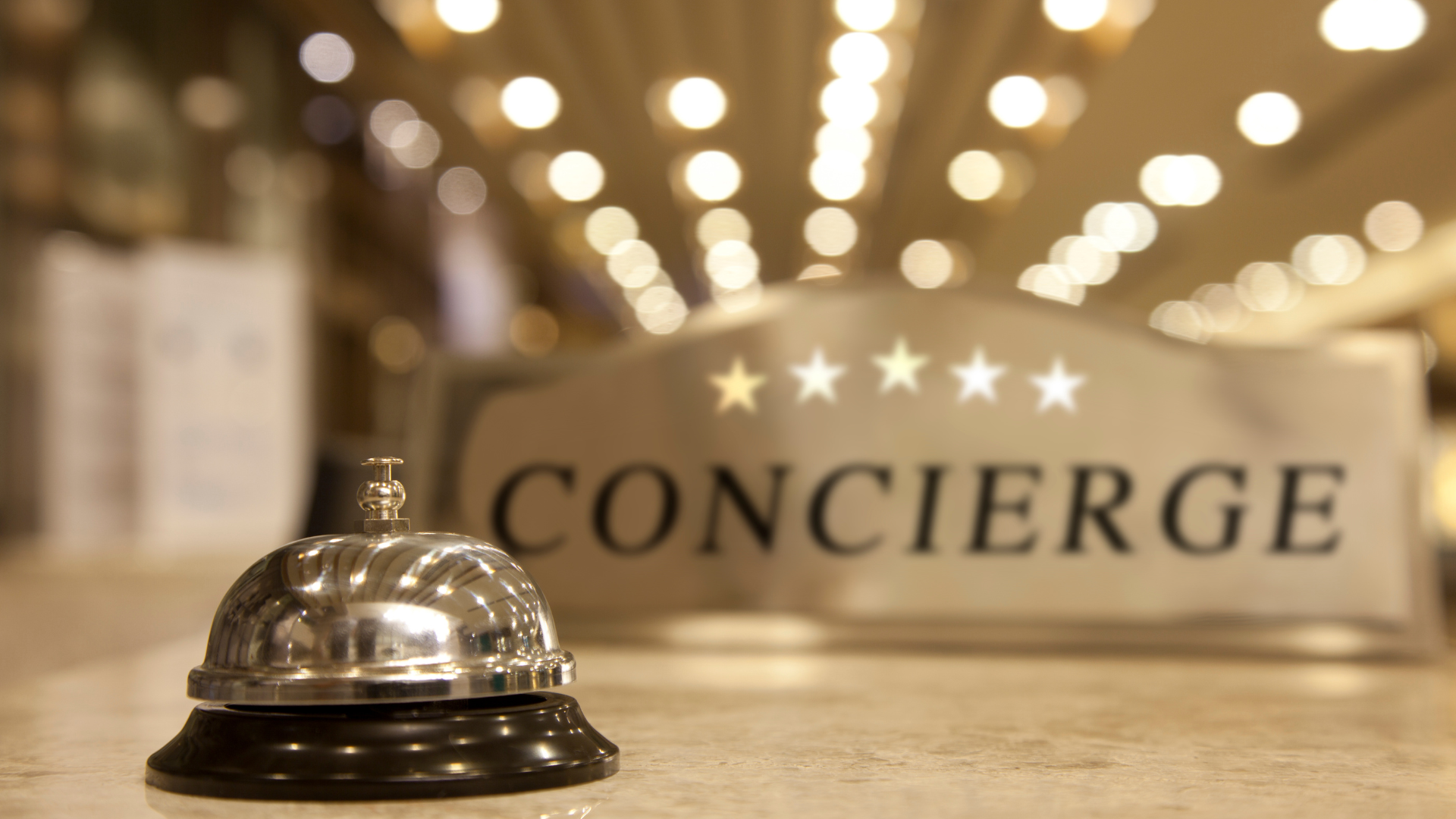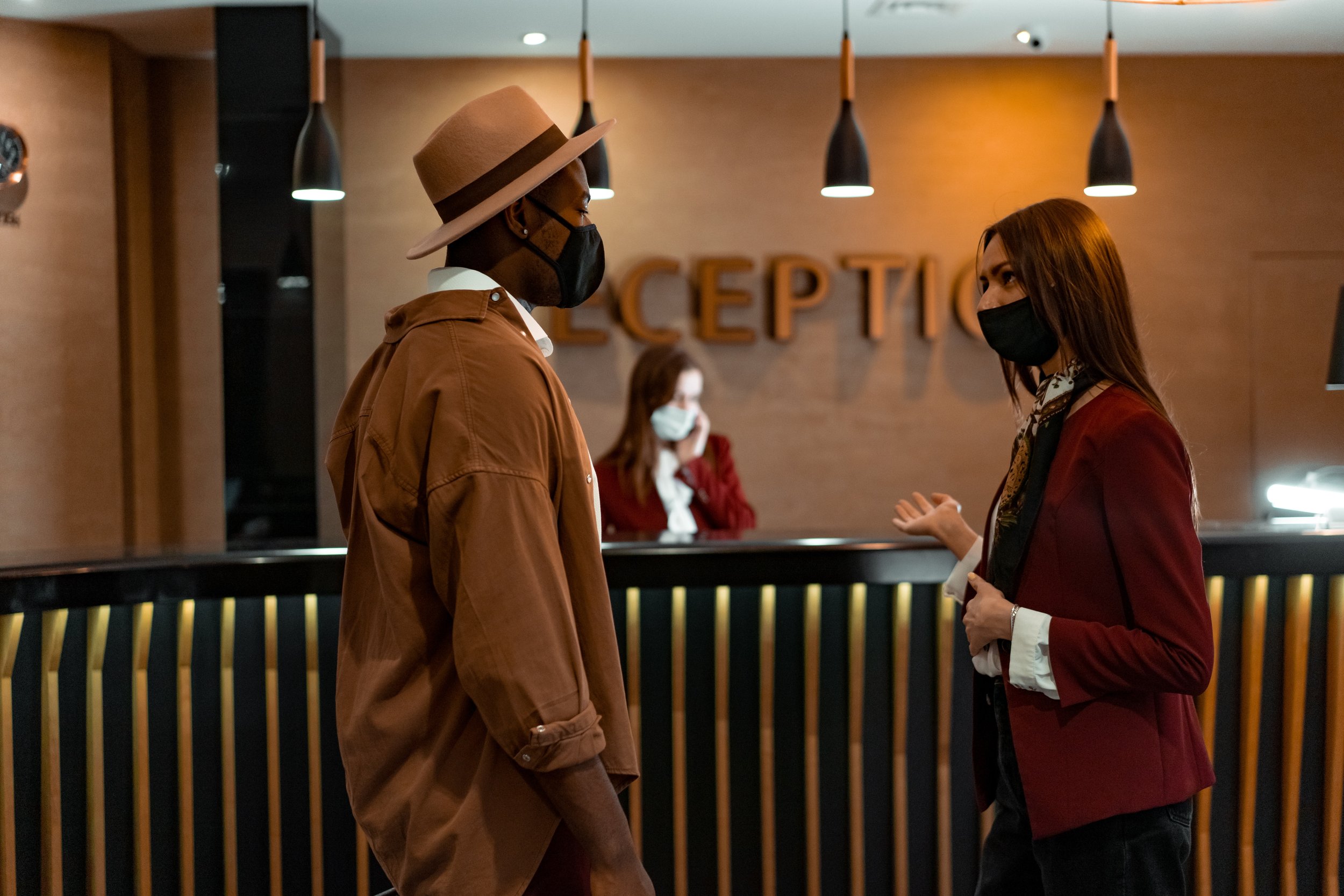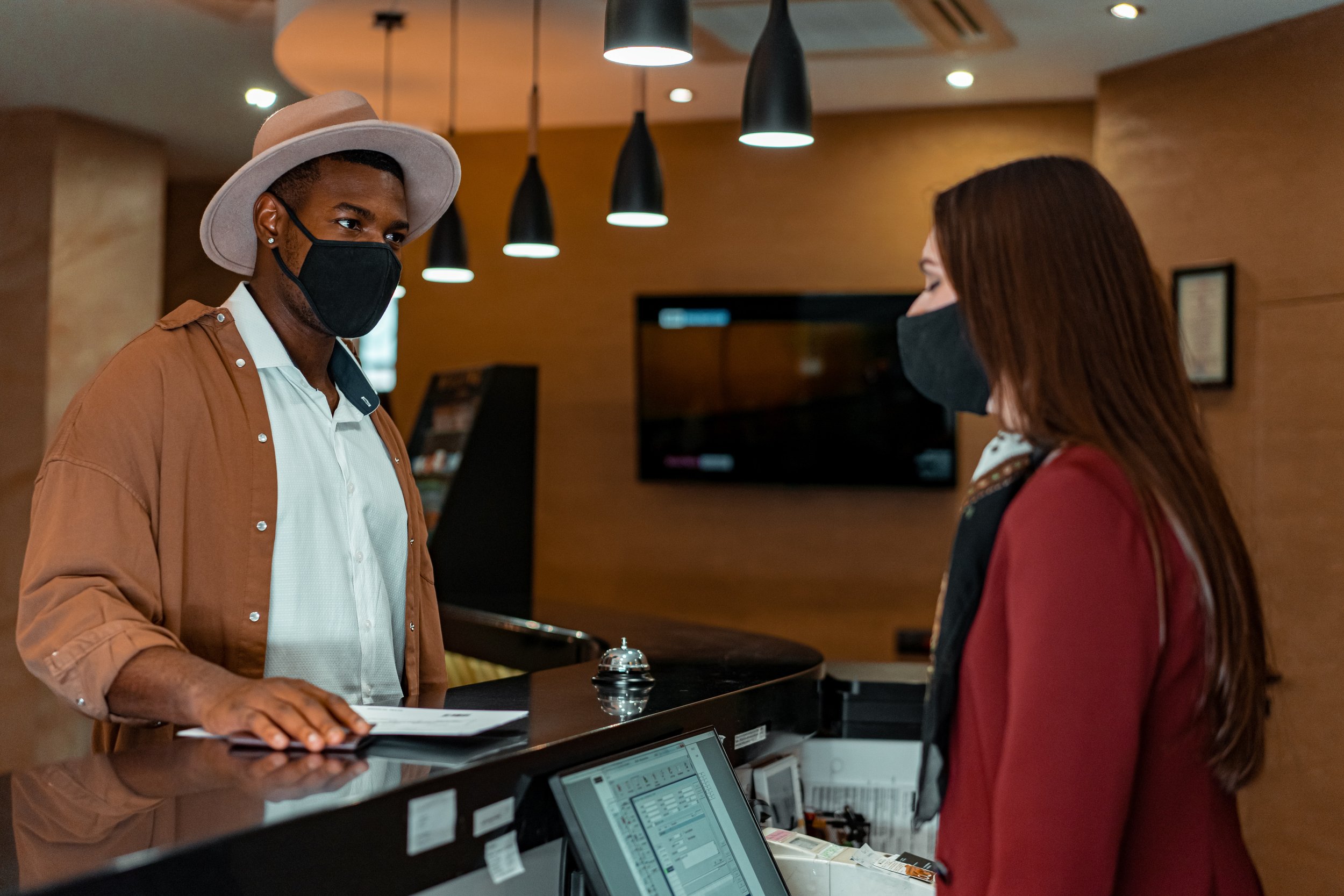Front Office Department
Front Office Operations
The front office is the nerve centre or hub of a hotel.
It is the department that makes the first and last impression on the guests, and the place that guests approach for information and service throughout their stays.
The three main functions of the front office are as follows:
Selling rooms
Maintaining balanced guest accounts
Providing services and information to guests
Organisation of the Front Office Department
The following image demonstrates the organizational chart for the front office of a large hotel. It serves to showcase the structure of the department and the various communication channels utilized within.
Duties of Key Positions
Front Office Manager
The front office department is headed by the front office manager (FOM) whose main duty is to enhance guest services by constantly developing services to meet the needs of guests.
The front office manager performs the following duties:
Monitoring reservation status
Looking over market mix and preparing occupancy forecasts
Determining rate structures and supervising policies
Reviewing occupancy and average room rate
Reviewing arrivals and departures daily
Making staffing adjustments needed for arrivals and departures
Reviewing, checking, and meeting VIPs and entertaining them
Assistant Manager
The Assistant Manager fulfills a pivotal role in overseeing the daily operations and functions of the hotel. Depending on the hotel's organizational structure, they may report directly to the General Manager.
The main duties of the assistant manager include:
Responsibility for developing and executing plans developed by the owner, general manager and other members of the management team
Checking on operations, providing feedbackand offering assistance when needed.
Completing, reviewing and summarizing statistical reports and sharing them with the general manager.
Assuming responsibilities for the daily operations and management of the hotel.
Guest Relations Officer
The Guest Relations Officer is accountable to the assistant manager. Their primary responsibilities include reviewing the daily hotel arrivals list, addressing customer inquiries, and providing them with requisite assistance.
Duties for the guest relations officer can include:
Greeting all arriving individual guests, especially those under commercial accounts
Provide local information for guests
Promoting in-house functions, facilities and services
Assisting front desk staff when they are busy and assisting guest to check out
Telephone Department

The department responsible for telephone services is overseen by the telephone services manager. Their team, consisting of telephone supervisors and operators, manages all incoming and outgoing calls through the hotel switchboard. The department prioritizes hiring staff members with exceptional communication skills and proficiency in various languages.
To optimize guest experience and streamline processes, several hotels have implemented a “one-stop service” approach, in which all guest requests are channeled through the telephone department.
One-Stop Service
For example
Currently, when a guest calls to make a booking with the coffee shop, the telephone operator transfers the call directly to the coffee shop. However, with the implementation of a one-stop service, the telephone operator can take the booking themselves, resulting in a faster and more efficient booking process. This streamlined approach can also enhance the guest experience and leave a positive impression.
Telephone Department
Phone department members need to:
• Provide general information regarding the hotel or local attractions to guests
• Place international calls, morning calls and wake-up calls as required by guests
• Administer the paging system of the hotel, which provides a communication service between certain hotel staff and management staff
• Administer the in-room movie system of the hotel
• Stay familiar with the names of Very Important Persons (VIPs) in the hotel
• Protect guest privacy by not disclosing room number or guest information
• Communicate with management, engineering, security and guests
Reservations

The reservations manager is responsible for determining whether room reservations can be accepted when the hotel has reached full occupancy. This includes deciding whether to stop taking reservations or allowing overbooking of rooms.
The reservations supervisor is tasked with closely monitoring all room reservations and promptly reporting any abnormal situations to the reservations manager. This could include instances where there is a higher-than-normal number of room cancellations.
The reservation clerk is responsible for managing all reservations and should be knowledgeable about the various sources from which reservations may originate.
Reservation Clerk
Duties include:
• Handle reservation requests and prepare reservation confirmation slips
• Request guests to confirm or guarantee their room reservations
• Keep records of each reservation and the number of room reservations taken
• Provide the front desk with details of reservations due to arrive the next day
• Prepare VIP lists
• Update guest history records
Reservation Sources
Listed below are some of the different sources that reservations may originate from:
• Direct reservation via telephone, fax, letter, e-mail or Internet
• Reservation network systems such as Leading Hotels of the World (LHW)
• Travel agents
• Tour operators
• Meeting planners
• Walk-in
Upon acceptance of a reservation request, the pertinent details of the reservation shall be recorded on a reservation form.
These reservation particulars include the guest's name, duration of stay, room category with corresponding rates, payment method, guest contact information, and any special requests.

Guaranteed
Guaranteed Reservations
For guaranteed reservations, the hotel will hold the room for the guest overnight or during the guaranteed period as the guest has prepaid for the room but no refund will be given if the guest does not show up.
Non-Guaranteed
Non-Guaranteed Reservations
A non-guaranteed reservation means that the hotel will hold the room until a stated cancellation time, normally up to 6 p.m. on the arrival date and then release the room for sale if the guest does not arrive.
Overbooking
Overbooking is a common industry practice where hotels accept more reservations than their available room count. This approach raises the chances of a full house while reducing losses due to last-minute cancellations.
However, if the hotel is overbooked and cannot provide a room upon check-in, they will have to walk the guests. Such rejection constitutes a breach of contract, and the hotel risks facing legal action. It's vital for experienced receptionists or front desk managers to handle such situations. The following procedure is recommended:
Apologize - The hotel staff must express regret and apologize to the guest.
Provide Alternatives - Offer a free room in an alternate hotel, complimentary transportation, or other forms of assistance. Additionally, consider providing a complimentary room upgrade or discount coupons.
Provide Assistance - Attend to the guest's baggage and arrange for transportation to the alternate hotel.
Follow-up - Call the alternate hotel to ensure the guest receives exceptional service.

The Practice of Overbooking in Hotels
To maximize occupancy during peak season, it's common for hotels to overbook, assuming that some guests might not arrive. Overbooking involves accepting more reservations than available rooms. To secure their booking, guests are usually asked to provide a guarantee by the reservations clerk during peak season. However, overbooking can bring about major problems, such as damage to the hotel's reputation, and increased guest dissatisfaction and complaints. Receptionists should be able to anticipate overbooking and take appropriate actions before guests arrive to avoid these issues.
Front Desk (Reception)
Front Desk Management
The front desk manager is in charge of maximizing room occupancy and revenue by overseeing the front desk. Meanwhile, the front desk clerk works alongside and under the front desk manager.
The duties of the Front Desk Manager may include:
Overseeing the smooth running of the front desk
Compiling staff duty roster
Greeting important guests, VIPs
Assigning rooms to guests
Dealing with group arrivals
Handling guest requests and complaints
The duties of the Front Desk Clerk include:
Greeting the guest
Providing information and promoting hotel facilities and services to guests
Checking in the guest
Maintaining guest account
Checking out the guest
Administering the safe deposit system of the hotel
Providing foreign currency exchange service to guest
Concierge
The concierge department encompasses a significant number of personnel, comprising:

Chief Concierge
The chief concierge is the overall in charge of this section. He/she normally works at a desk in the main foyer. The following guest services are provided by the concierge:
• Providing information/advice on hotel products/services
• Confirming airline passages and purchasing airline tickets
• Reserving tables at restaurants and tickets to shows
• Arranging the hire of the hotel limousine or other transportation services
• Handling guest requests and inquiries
Airport representative
Airport representative's duties include:
• Greeting hotel guests at the airport
• Arranging hotel transportation for guests from the airport to the hotel
• Answering inquiries from guests
• Taking hotel room bookings
• Assisting departing guests at the airport
• Liaising with airlines for special arrangements for guests
Parking Attendant
The parking attendant’s duties include:
• Parking cars for guests
• Assisting the door attendant in ensuring that traffic flow at the hotel’s main entrance is free-flowing
Door Attendant
In general, the door attendant works outside the hotel’s entrance. Duties include:
• Greeting all new arrivals
• Providing door service to guests
• Summoning baggage porter to assist arriving guests
• Calling taxis and providing the hotel address card for guests
• Paying taxi fare on behalf of the hotel guests who do not have local currencies
• Directing traffic and parking of vehicles at the main entrance
Driver
The hotel drivers, duties include:
• Taking guests to and from the airport
• Upon request, acting as a personal driver for a guest
Baggage Supervisor (Bell Captain )
The baggage supervisor’s duties include:
• Answering telephone calls from guests regarding baggage pick up from rooms
• Assigning baggage porters to handle the guest baggage
• Receiving guest deliveries
• Handling guest requests for postal services
Baggage Porters ( Bell Attendant )
The baggage porter duties include:
• Handling guest baggage
• Escorting guests from the front desk to their rooms
• Running errands for the executive office and hotel guests
• Delivering mail/messages to guest rooms
• Handling storage of guest baggage/belongings for late check-out
The Executive Floor
Responsibilities of the Executive Floors and Business Center Manager
The Executive Floors and Business Center Manager is in charge of maintaining smooth operations in these key areas. The hotel's executive floor, located on the top floor, provides a private, comfortable space for business travelers to conduct meetings at an additional cost. Guests of the executive floor can take advantage of exclusive complimentary privileges and benefits, which vary depending on the hotel.

Examples are as follows:
Express check-in and check-out services on the executive floor
Complimentary breakfast buffet, afternoon tea, and all-day refreshments in the executive floor’s lounge
Complimentary in-room local calls and high-speed Internet access
Garment ironing service
Complimentary use of the hotel’s fitness center and boardroom
Personalised business and concierge services
Numerous hotels offer a business center catering to both business and leisure guests. These centers typically furnish an array of services and facilities, including access to business equipment, presentation supplies, computers, meeting rooms and event spaces, and wired or wireless Internet access. Secretarial and translation services may also be available.
However, economy properties typically provide limited business services with self-service options.
Front Office Relationship to Other Departments
Managing Daily Operations
In a hotel, the front office serves as the hub for guest transactions and information exchange. The data gathered and distributed in this department can be utilized by other hotel sections to better serve guests throughout their stay. This is crucial to ensuring a seamless guest experience in all stages of the guest cycle.
Engineering
The engineering department is responsible for maintaining the hotel facilities under the care of the front office department such as the proper of functioning of the guest lift.
Housekeeping
The housekeeping department requires the following information from the front desk:
• Check-in, occupied and check-out rooms in order to organize room cleaning
• Special requests, so that extra amenities and services can be provided to guests
In return, the housekeeping department will provide the actual room status to the front desk for comparison with the computer record. Any discrepancy found will be double checked by the Assistant Manager.
Security
The front office needs to provide guest information to the security department in the event of emergency; such as fire alarm, power failure and so on.
When a guest reports loss of property to the front office, the security department will be informed to handle the case together with the front office assistant manager.
Other departments that benefit from information provided by the front office also include the following:
Human Resources
The human resources department offers crucial services such as staff training and recruitment to the front office. Moreover, it establishes and maintains staff grooming standards, as well as manages the implementation of disciplinary protocols.
Food and Beverage
The front desk will provide the food and beverage department with a guest room special amenities request form.
The food & beverage department then arranges for items such as welcome fruit baskets, chocolates, and wine to be placed in the guest room.
For groups, the food & beverage department will need the front desk to provide information on meal arrangements so as to reserve seats in the outlets or conference rooms for guest meals.
Sales & Marketing
In order to ensure efficient handling of corporate bookings or group/tour reservations, it's imperative that the sales and marketing department collaborates closely with the front desk and reservations department. Additionally, the front desk should provide the sales and marketing team with an up-to-date rooming list, including guest room numbers, upon the arrival of large groups or tours.
Accounts
It is imperative to document and transfer information regarding advance deposits received by the reservations department and payments received by the front desk to the accounts department. The latter is responsible for overseeing guest accounts, verifying credit limits, and collecting payments. Additionally, the accounts department should create a catalog of credit-approved businesses, which is necessary for reservations and the front desk when processing bookings.
Main Duties of Front Desk
Procedural Guidelines for Registration and Check-in
Typically, hotels permit check-in at 2 p.m. or later. It's crucial for receptionists to conduct the registration procedures with efficiency and accuracy, as they set the tone for guests' initial experience.
The following are the check-in steps, which will be explained in more detail:
Greet the guest
Verify guest’s identity
Present the registration form
Confirm the method of payment
Update the guest account
Issue room key
Escort guest to room
The standard procedures that should be followed by staff at the front desk, for the registration of guests, include the following:
Greet
Greet the Guest
Receptionists should always be attentive to the presence of guests at the front door and lobby areas. They should give warm greetings to the guests when they approach the front desk.
2. Verify
Verify the Guest’s Identity
Ask if the guest would like to check-in. Verify the guest’s identity by checking his/her passport, booking voucher and confirmation number.
3. Present
Present the Registration Form to the Guest
Confirm the booking information printed in the registration form with the guest. For example, room type, room rate, length of stay, and special requests if any. Finally, ask the guest to complete and sign the registration form.
4. Confirm
Confirm the Method of Payment
If a credit card is used, check the guest’s name, the card’s validity and its date of expiry. For guests who prefer paying cash, make sure they have paid in advance with cash deposit. Guests should also be reminded that they will not be allowed to post any charges to their guest accounts if no credit card is provided at the time of checking-in.
5. Update
Update the Guest’s Information
Check if any mail, message or article is received before the guest’s arrival. Select and assign a suitable room to the guest according to his/her booking information.
6. Issue
Issue Room Key and Give Further Information
While issuing the room key and giving directions to the guest, staff should also take the chance to provide more information on the hotel. For example, the breakfast arrangements; the operation hours of the hotel’s outlets and facilities.
7. Escort
Escort Guest to the Room
Ask if the guest needs assistance from the baggage attendant who can take the guest’s baggage and escort the guest to their room.
Variations of Registration
The registration protocols for group guests, such as tours and event attendees, differ from the standard check-in procedures for individual guests. To minimize wait times in the lobby and expedite the service process, hotel receptionists typically execute the following procedures.

Pre-registration
Receptionists can take specific steps to prepare for group guest arrivals. These include verifying room numbers and ensuring sufficient availability of rooms for groups. Additionally, receptionists are responsible for preparing key cards ahead of time as per the room lists provided by travel agents or event organizers.
Group Registration
Certain hotels provide group check-in counters catering specifically to group guests. This eliminates the need for individual check-ins, as tour escorts or event organizers can check in groups instead.
In addition, some hotels establish a tour assembly point for large groups, where meeting rooms may be utilized to manage traffic flow and enhance guest comfort upon arrival in the hotel lobby.
Upon registration, the front desk clerk will request to see the guest's identification card or passport to verify their identity. Upon completion of the formalities, the front desk clerk will issue the room key, and a baggage porter will accompany the guest to their designated room.
Additionally, it's a standard procedure for hotel staff to collect a deposit or credit card information before permitting guests to check in.
Check-out Procedures

Most hotels set their check-out time at 12 p.m., though this may vary depending on the hotel and its location. Check-out procedures are as crucial as the check-in process. Reception staff must focus on payment collection, customer assistance, and creating a positive parting experience for guests.
Below are the standard check-out procedures to be followed by reception staff at the front desk:
1. Greet
Greet the Guest
Similar to the check-in process, the reception staff can utilize the greeting as an opportunity to request feedback from the guest on their overall experience.
2. Guest Details
Guest Details
Verifying guest information, such as their name and room number, is a crucial step in ensuring guest satisfaction. It's prudent to double-check with the guest to confirm that their stay was satisfactory and address any concerns they may have. Lastly, kindly request that the guest returns the room key.
3. Charges
Check-out Charges
It's typical for hotels to require guests to check out by noon. In case of a late check-out, receptionists must adhere to the hotel's policy. Certain hotels may charge 50% of the daily room rate for check-outs before 6 p.m. with the full rate applying after 6 p.m.
4. Double - Check
Double - Check the Hotel Charges
It's the responsibility of the receptionist to present the bill to the guest for review and approval before settling their account. Additionally, the receptionist should provide a clear explanation of all charges, address any questions or concerns, and make any necessary corrections.
5. Payment
Kindly reconfirm the payment method with guests, particularly those traveling for business or tours who may seek to divide their bill into two separate charges:
The master bill, which covers charges for rooms and breakfast only.
The incidental bill, which accounts for personal costs incurred during the stay.
6. Assistance
It's recommended to inquire if guests require any assistance during their stay, as some may request the front desk to hold their baggage before departing. Additionally, staff members should use the opportunity to assist guests in making future reservations upon request.
7. Update
Update Room and Guest History Record
Upon the guest's departure, kindly ensure the room status is updated promptly to allow for efficient cleaning and swift availability of the room for future bookings.
Guest Cycle
The functionality of the front office department is primarily reliant on the volume and manner of guest transactions that occur during each of the four distinct phases in the guest cycle.
The guest cycle encompasses four distinct phases:
Pre-arrival - This stage commences when the guest reserves a room.
Arrival - The guest arrives at the hotel.
Occupancy - During this phase, the guest stays in the hotel.
Departure - The guest checks out and departs from the hotel.
Revenue and Sales Indicators

Typically, a hotel's revenue is predominantly derived from room sales, followed by sales in the food and beverage sections. However, the revenue contribution of each unit varies across different types of hotels. For small-scale hotels with no restaurant outlets, their revenue heavily relies on room sales for their sustenance.
Example:
Casino hotels generate the majority of their revenue from gambling activities, while the costs for lodging and dining are comparatively lower, sometimes even subsidized, to entice more visitors. In contrast, convention hotels and event-focused accommodations tend to earn more from hosting banquets and conferences.
Sales indicators refer to how hotels count and measure their business performances.
Some basic indicators which are applied by hotels include the following:
Occupancy Rate
Occupancy Rate
The Occupancy rate is a common sales indicator that tells how well the hotel has fully utilized the room resources to maximize profit. It is always the objective of hotels to achieve full-house, i.e. 100% occupancy, when all the rooms are sold out for the night.
The formula for the occupancy rate is shown below:
Occupancy Rate = Number of Rooms Sold ÷ Total Number of Rooms in a Hotel x 100%
Guests Per Room
Guests Per Occupied Room
This gives the ratio between guests staying in the hotel and the quantity of occupied rooms. Regardless of the room types available in the hotel, it gives a general idea of how many guests are staying in each room. The information is useful for different departments, e.g. housekeeping can refer to the guest ratio to estimate the consumption rate of guest supplies.
The formula of guests per occupied room is shown below:
Guests Per Occupied Room = Number of Guests Staying in a Hotel ÷ Number of Rooms Occupied
Average Room Rate
Average Daily Room Rate (ADR)
While occupancy rate tells the ‘quantity’ of businesses, top management is also interested to know about the ‘quality’, i.e. how much they charge for a hotel room. The ‘average daily room rate’ is calculated which gives a general estimate of the average room charge received by a hotel, regardless of the differences in room types and rates.
The formula for the average daily room rate is shown below:
Average Daily Room Rate (ADR) = Room Revenue ÷ Number of Rooms Occupied
Revenue Per Room
Revenue Per Available Room (REVPAR)
This is similar to the Average daily room rate in indicating the hotel’s performance. The only difference between REVPAR and ADR is the denominator. Instead of just considering the actual number of rooms sold, hotels tend to use all rooms available in calculating the REVPAR, i.e. to include all vacant rooms, out-of-order rooms and rooms for ‘house use’ in the calculation. The value is always smaller than the ADR which serves as a good means to check the ability of management in utilizing all room resources to maximize the hotel revenue.
The formula of REVPAR is shown as below:
Revenue Per Available Room (REVPAR) = Room Revenue ÷ Total Number of Hotel Rooms
Next Lesson
The housekeeping team is responsible for ensuring the cleanliness and maintenance of all areas in the hotel, including guest rooms, public spaces, office areas, and back-of-the-house areas. By doing so, the property remains as pristine and appealing as it was on its first day of business.


















